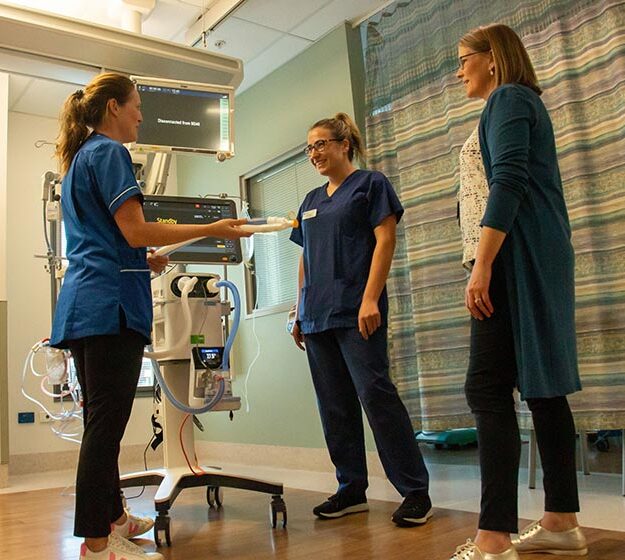“The idea is to be prepared for a pandemic, particularly in critical care units, and ensuring we have a workforce with some skill in supporting critically-ill patients,” College of Critical Care Nurses chair (CCCN) Tania Mitchell said.
The $2 million initiative will provide up to 32 hours per year of online and hands-on learning for nurses who are experienced in other areas but new to critical care. “It will allow them to come and work in critical care and know the fundamental nursing cares for the critically ill – without full critical care training, which takes years,” Mitchell said.
The plan was for nurses to complete the seven online learning modules – currently being finalised by critical care nurse educators – before working in intensive care areas alongside experienced critical care nurses to learn the “fundamental” nursing cares, Mitchell said.
“They come from their normal areas of practice in other parts of the hospital to do some bedside training, working with an experienced ICU nurse to up their critical care skills,” she said. “We’re aiming to get people to a basic standard where they can work as part of the team.”
Keen volunteers
Mitchell said nurses had been keen to work in critical care units last year when COVID-19 emerged. “This time last year, we certainly had many keen staff who wanted to be able to help and volunteer to work in this area.”
Critical care nurses, she said, were “very on board” with the training scheme. “These are people who have offered to come and work here. We would not be able to manage without them, so we are keen to support and encourage them.”
CCCN successfully lobbied the Ministry of Health (MoH) to invest in a pandemic “surge” workforce last year, after raising concerns with then-chief nurse Margareth Broodkoorn that district health boards (DHBs) weren’t doing enough.
The MoH then announced last July it would provide $2 million to DHBs to train surge workers to step into intensive care roles during an outbreak or other mass patient event.
While New Zealand has not experienced the onslaught faced by many overseas hospitals over the past year, COVID-19, along with events such as the Christchurch mosque shooting and the Whakaari/White Island disaster, were reminders to be prepared for mass events, Mitchell said.
“Our goal is to have a nursing surge workforce ready to support such events.”



